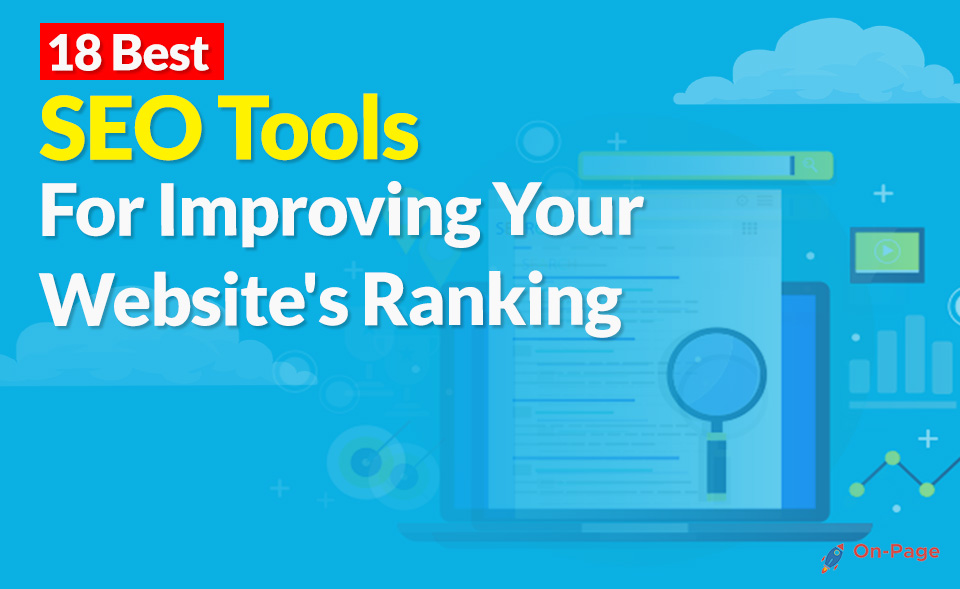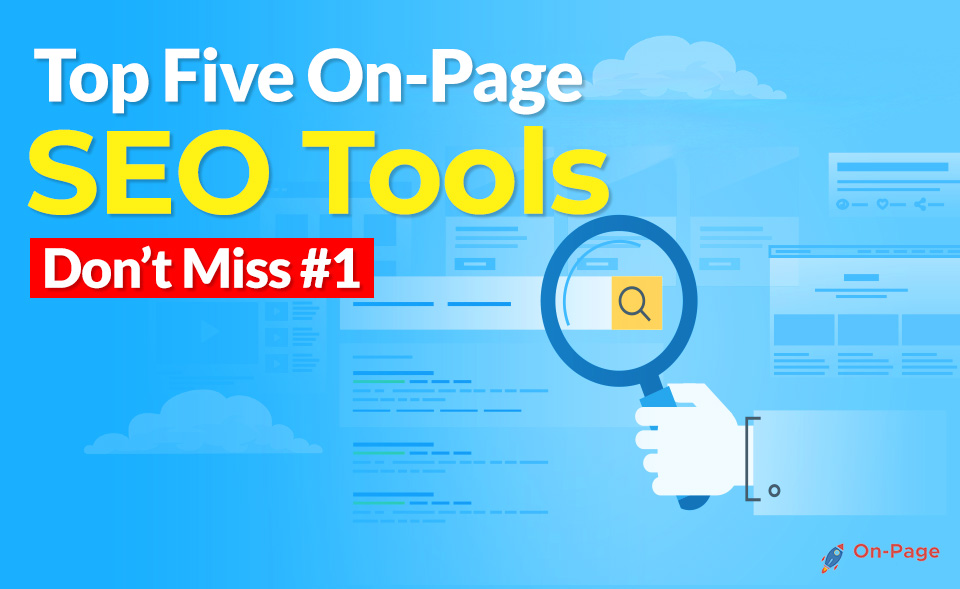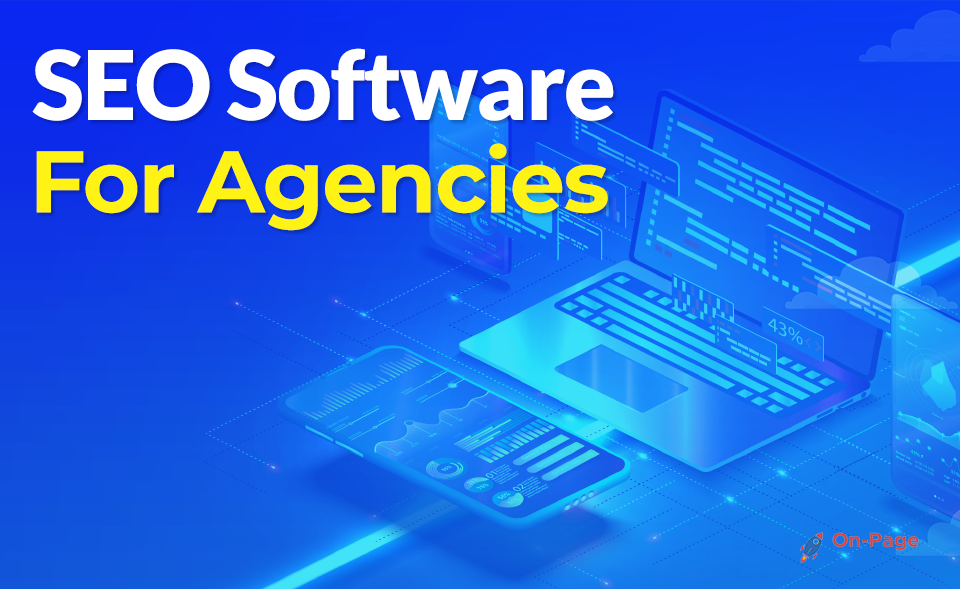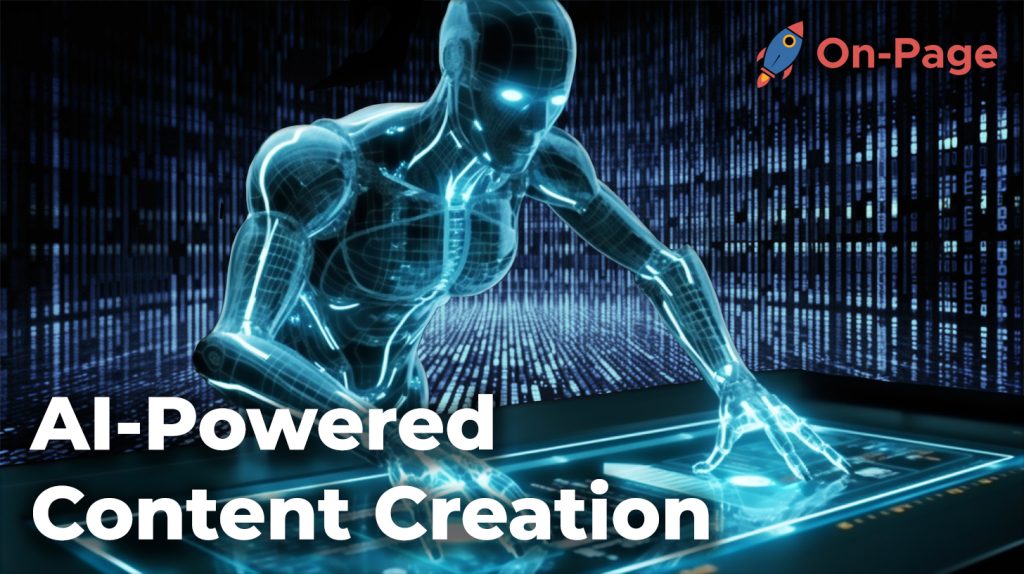
Imagine a world where social media content is curated at lightning speed, optimized to engage your target audience with precision, and all done with minimal effort. Welcome to the future of AI-powered content creation – a game-changer for social media marketing that’s revolutionizing strategies and redefining success. Dive into this fascinating realm and learn how our tool, On-Page.AI, is reshaping the landscape of digital marketing by offering the best SEO optimization on the market. Get ready as our cutting-edge technology casts its spell, turning mundane posts into viral sensations!
AI can assist social media marketers and content creators in various ways such as generating multiple variations of short form copy, suggesting appropriate hashtags, creating images or videos, analyzing data, and even automating the posting process. With the help of natural language processing (NLP), machine learning algorithms, and neural networks, AI-powered tools can create text that sounds more like it was written by a human. This makes creating high-quality and engaging content easier and more efficient for businesses of all sizes seeking to achieve greater visibility on social media platforms.
AI-Powered Content Creation in Social Media

One of the most exciting applications of artificial intelligence technology is content creation. With machine learning and natural language processing, AI can create text that sounds more like it was written by a human than a machine. In social media, AI-powered content creation like the On-Page Content Editor Tool can help marketers produce high-quality content at scale while saving time and resources.
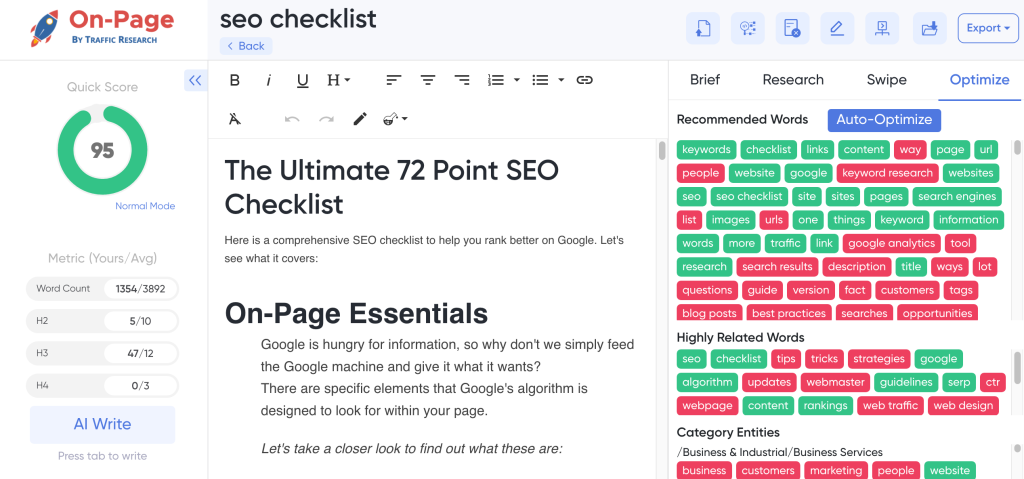
Let’s say you’re managing a Twitter account for your company, and you need to post ten tweets per day. Writing those tweets can take up a significant amount of time and effort, not to mention the challenge of coming up with fresh ideas consistently. By using an AI-powered tool like On-Page Scan, you can generate tweet ideas quickly and easily. The tool will suggest relevant topics based on your keywords or hashtags, create different versions of the tweet using NLG (natural language generation), and even schedule them for publishing.
AI-powered content creation can significantly improve social media marketing by increasing engagement rates amongst users. A study by Salesforce found that personalized content generated by AI engines drives four times the user engagement compared to generic non-personalized content.
However, there are concerns that using AI-generated content could lead to a loss of authenticity for social media brands. After all, most users prefer to engage with genuine human-generated content rather than faceless bot-generated messages. Therefore, it is crucial to maintain a balance between utilizing AI-assisted content creation and maintaining a personal touch while communicating on social media platforms.
Think of AI as an additional team member who has their unique set of talents – they’ve got great data analysis skills to back up their creative writing skills – together with the rest of your team; you have access to insights that other teams may not have. You may check Stealth AI Writer for an amazing writing experience.
Now that we’ve covered why AI-powered content creation is beneficial let’s explore the technology further and look at how natural language processing and generation make it possible.
Natural Language Processing and Generation
Natural language processing (NLP) is an AI-technology that allows computers to understand, interpret, and generate human language. It involves breaking down human language into their most basic components—words, phrases, and sentences—to comprehend them. On the other hand, natural language generation (NLG) is a process in which machines turn structured data or information into meaningful narratives.
For example, an NLP-powered tool such as Google’s autocomplete feature uses predictive text algorithms to provide users with complete sentences based on individual keywords. NLG plays a significant role in making Siri, Alexa, and other virtual assistants capable of answering questions by producing conversational responses that sound just like humans.
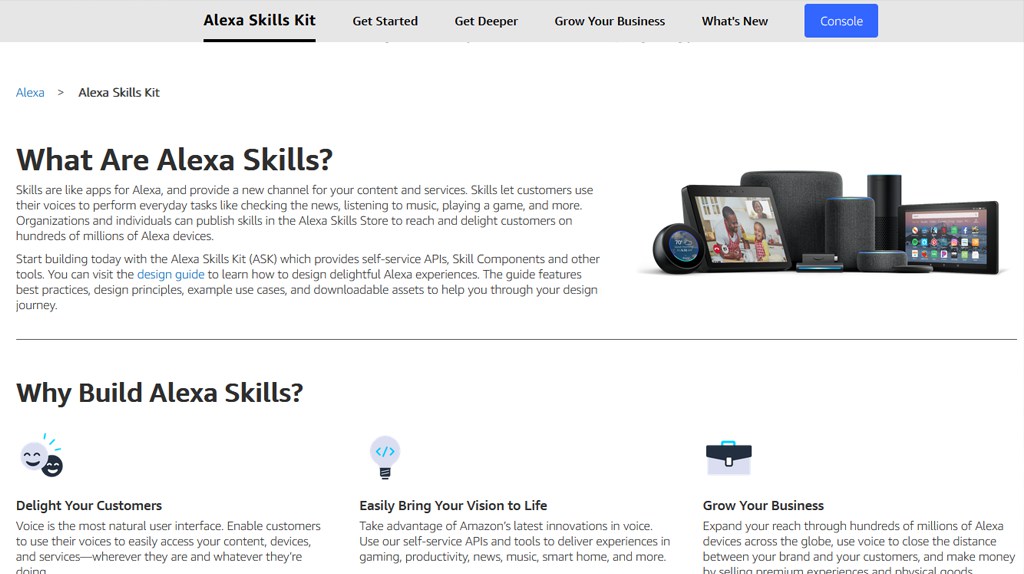
The use of NLP and NLG in AI-assisted content creation enables marketers to produce highly customized content easily. They can tailor messages using specific words or themes that resonate with their target audience. In doing so, businesses can build trust with their customer base and improve brand loyalty.
However, there are concerns over the quality of the AI-generated content. Many companies still believe that creating genuine user-centric content requires a human touch. Even though AI technology has limits on producing original long-form content where human creativity is necessary, machine learning technology may bridge this gap over time.
Using NLP in your social media automation tools can be thought of as having a real-time grammar assistant but for your social media channels.
Now that we’ve explored the critical role played by natural language processing and generation let’s see how AI can be useful for managing social media platforms.
- According to a study by MarketsandMarkets, the global AI market for social media is expected to grow from $954.3 million in 2022 to $3,637.2 million by 2026, at a CAGR of 30.9% during the forecast period.
- Research from Accenture suggests that by utilizing AI-based content creation tools, organizations can potentially increase their content output by up to 15 times while reducing costs substantially.
- A report by Salesforce found that around 82% of marketers who adopted AI technologies into their social media strategies saw an increase in customer engagement and overall return on investment (ROI).
Tailoring Content for Different Platforms
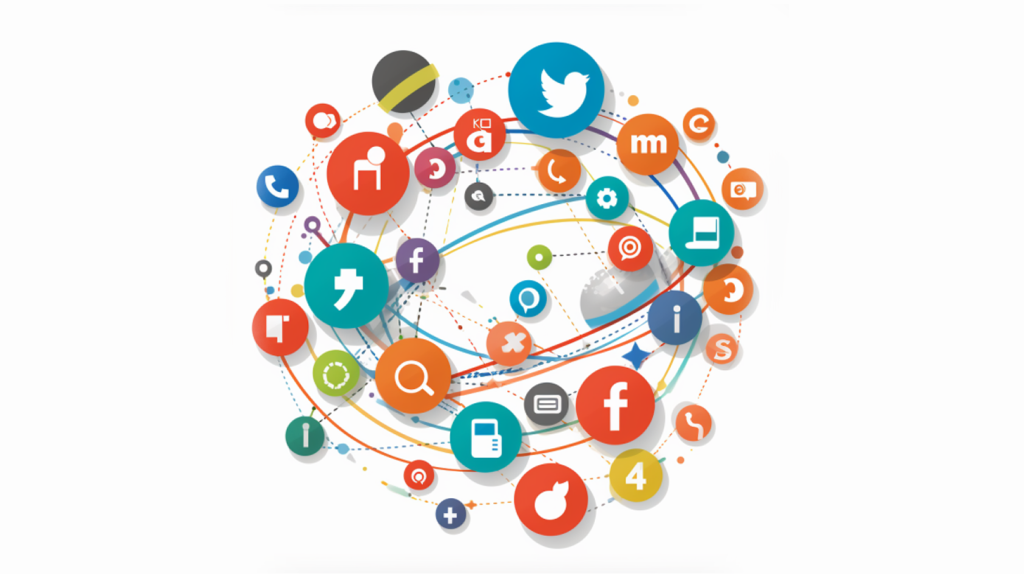
In the era of social media, brands need to be present on various social media platforms including Facebook, Instagram, Twitter, LinkedIn, and more. Each platform has a unique set of features and audience demographics that businesses must take into consideration while creating content. The challenge is to create content that is both engaging and relevant to the target audience across different platforms. AI-powered content creation has emerged as a powerful solution to address this issue.
- For instance, let’s say you want to promote your brand’s latest product launch on multiple social media platforms like Facebook, Instagram, and Twitter. While Facebook allows longer captions and supports multiple image uploads in a single post, Instagram prioritizes quality visuals with short, catchy captions. Twitter only allows limited character counts for its captions. Creating tailored content for each platform manually can be time-consuming and challenging.
- However, AI-powered content creation can simplify this process by creating customized content optimized for each platform by analyzing factors like length limitations, best-performing hashtags, peak posting times, and more. AI algorithms use natural language processing (NLP) and natural language generation (NLG) techniques to generate compelling text that aligns with the tone and style of each platform.
- Some might argue that manually tailoring content for each platform offers its own benefits and uniqueness compared to using an AI algorithm. However, it is important to consider the scale at which social media managers have to work. Handling multiple campaigns across diverse platforms requires massive effort in terms of research, design ideation to keep up with the continuously evolving social media landscape.
By leveraging AI tools like Lately or Lumen5’s Social Video Maker powered by AI, brands can streamline their entire workflow including. These tools analyze existing high performing content from your website or social media channels and create unique posts completely aligned with your brand guidelines. The posts generated by the AI tools are likely to receive more engagement, as they are optimized for each platform’s nuances and unique audience.
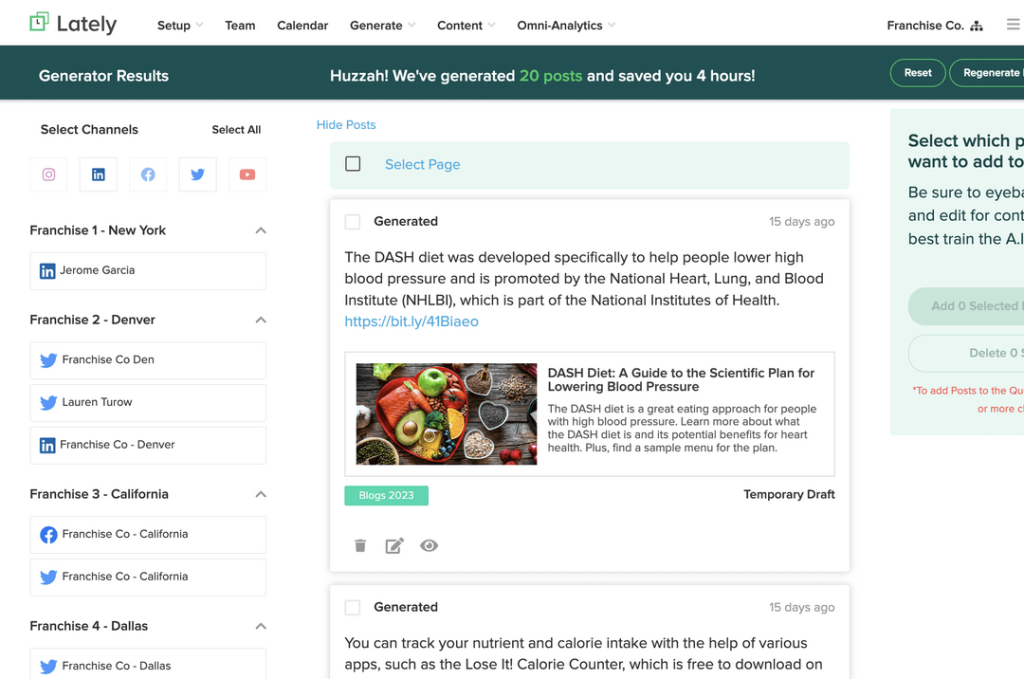
Tailoring content for different platforms helps businesses increase their social media presence and reach in a smarter way. However, creating tailor-made content is just one aspect of social media management. In the next section, we’ll explore how AI can help overcome some of the challenges associated with managing multiple social media platforms effectively.
Advantages of AI for Social Media Management
Managing multiple social media platforms can be time-consuming and overwhelming, especially for small businesses. They often have limited resources and a small team handling various operations at once. However, AI-powered social media management tools can address this challenge and provide several advantages to businesses of all sizes.
Firstly, AI algorithms can automate several routine tasks like posting content, monitoring engagements, responding to messages, commenting on posts, and much more. It lets humans focus on creative tasks like designing visuals or writing captivating captions that are key elements to a successful campaign.
For instance, Sprout Social is an AI-based social media management tool that integrates with different social media channels to provide detailed reporting and analytics about audience engagements and web traffic data. The tool offers reports that specify metrics on your most engaged followers or posts and best time to post based on your specific audience or region.
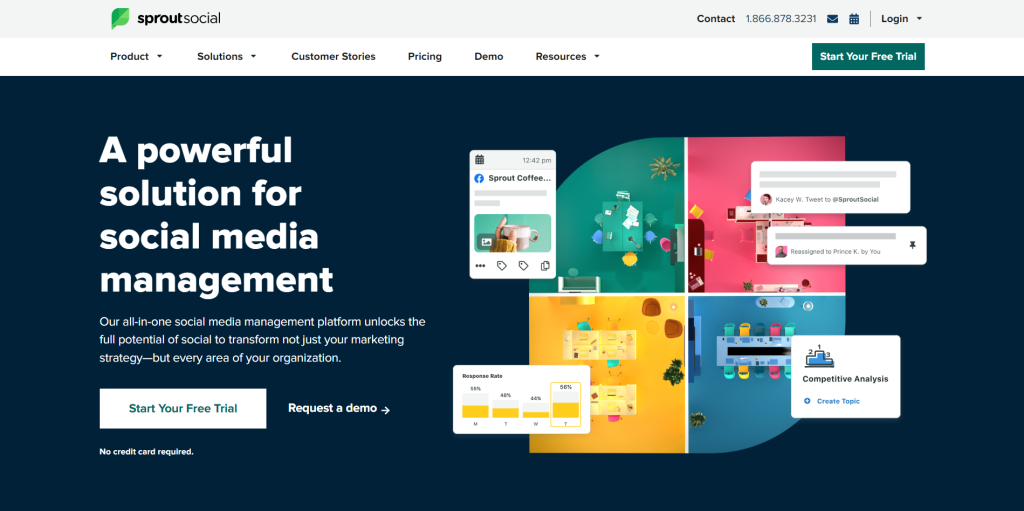
However, some may argue that automating certain aspects of social media management takes away the personal touch involved in human-to-human communication necessary in building trust for customers. This concern remains relevant; however AI-powered sentiment analysis tools can make sure they’re not losing the essence of personalized customer service. Chatbots powered by NLU (Natural Language Understanding) processes your customer’s messages and suggests canned responses that empathize with customer needs while resolving their queries quickly.
Secondly, AI-powered social media management tools have a unique ability to derive insights from data – customer behavior and preferences that help businesses make informed decisions. Insights like not just what worked, but opportunities to optimize the next campaign to achieve even more engagement and reach. Data-driven decision making gives businesses an edge when it comes to meeting customers’ expectations.
For instance, Buffer’s Social Media Suite, is an AI-powered tool that integrates with Google Analytics to monitor web traffic data. It provides you with detailed insights on how your brand’s social media strategy is performing, giving you opportunities to improve in areas where your campaigns might not be working as well as anticipated.
To sum up, handling multiple social media channels produced by different platforms can be comparable to spinning multiple plates in the air simultaneously. Each platform requires specific attention or else the plate will drop. However, by integrating AI-powered social media management tools into the workflow, businesses can manage all of their platforms effectively without dropping any plates.
The use of AI-powered content creation and management tools have revolutionized the way businesses approach social media marketing. The sophistication of these tools has made it possible for brands to engage with their audience creatively and innovatively while focusing on optimal business objectives.
Improved Efficiency and Time Savings
Social media management can be a daunting task for businesses of all sizes. With so many platforms and channels to manage, it’s easy to get bogged down in the details. Fortunately, AI-powered tools can help streamline the process, leading to greater efficiency and time savings.
- For instance, an AI tool can help automate tasks like scheduling posts, adding hashtags, and responding to comments. This can free up social media managers to focus on more creative tasks like crafting engaging content or developing new strategies. By automating repetitive tasks, AI allows teams to work smarter instead of harder.
- Furthermore, AI can help optimize social media content and campaigns through data analysis. By tracking metrics like engagement rates, reach, and click-throughs, AI algorithms can analyze what content resonates best with audiences. This information can then be used to make informed decisions about future content creation and strategy development.
- Some may argue that allowing machines to handle social media tasks takes away from the human touch that is critical for successful engagement. However, I would argue that by freeing up humans from tedious tasks like scheduling and monitoring, they are better able to focus on creating high-quality content that truly connects with their audience.
- Think about it this way: a chef who spends all her time washing dishes is never going to have time to create innovative new recipes or fine-tune her techniques. But if she has a dishwasher in the kitchen, she can devote more time and attention to cooking amazing food that will win over diners’ hearts (and stomachs!). The same is true for social media management- by delegating certain tasks to AI-powered tools, businesses can free up their teams to focus on higher-level tasks that require creativity and critical thinking.
Now that we’ve covered how AI tools can lead to improved efficiency and time savings in social media management, let’s shift our focus to the other major benefit of these tools: analytics and data-driven insights.
Analytics and Data-Driven Insights
AI-powered social media management tools can help businesses streamline their processes and save time by automating repetitive tasks and optimizing content through data analysis. By freeing up humans from tedious tasks, teams are better able to focus on creating high-quality content that truly connects with their audience. Additionally, AI algorithms can track key metrics and provide data-driven insights for more informed decision-making. Overall, using AI in social media management can lead to greater efficiency and smarter working practices.
One of the biggest challenges businesses face when it comes to social media management is figuring out what content works best for their audience. With so much noise on social media channels, it can be challenging to truly understand what resonates with your followers.
That’s where AI-powered analytics come in handy. By analyzing metrics like engagement rates, follower demographics, and platform-specific algorithms, AI can help businesses gain deeper insights into what content drives conversions and engagement.
- For instance, an AI-powered tool may find that videos perform better on Instagram than static images. Armed with this information, social media managers can then shift their content strategy to include more video-based content for higher engagement rates.
- In addition to informing content creation decisions, AI analytics can also help measure the effectiveness of campaigns over time. By tracking key metrics like click-throughs, conversion rates, and return on investment (ROI), businesses can get a clearer picture of how their social media efforts are impacting their bottom line.
- Some may argue that relying too heavily on data-driven insights takes away from the creativity that is needed for successful social media marketing. However, I would argue that by using data as a guidepost rather than a rigid rulebook, businesses can strike a balance between creativity and performance optimization.
- It’s like driving a car- you need both your instincts and your GPS to get to your destination safely and efficiently. Similarly, relying solely on intuition when crafting social media content or strategy may lead to missed opportunities or wasted resources. But by using data-driven insights as a guide (like a GPS), businesses can stay focused on their goals while still leveraging their unique insights and brand voice to create content that truly resonates with their audience.
In short, AI-powered analytics enable businesses to make more informed decisions about their social media strategy by harnessing the power of data. By using AI to track engagement rates, measure campaign efficacy and optimize content creation, social media managers can achieve higher efficiency and greater success in their marketing efforts.
Overcoming AI Challenges in Social Media
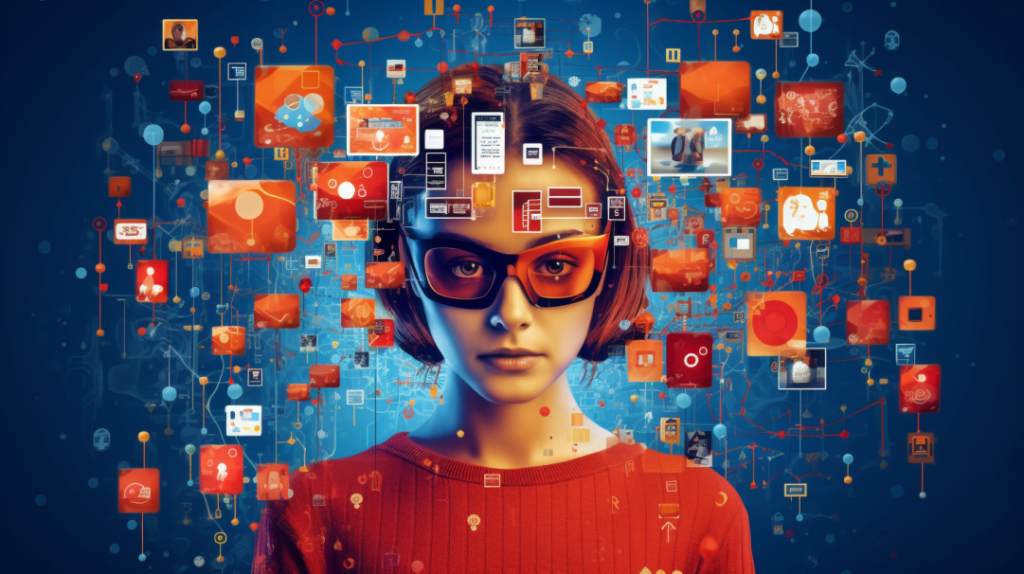
AI-powered content creation has revolutionized social media marketing. However, it’s not without its limitations and challenges. One of the biggest challenges that businesses face while using AI for social media content creation is ensuring that AI-generated content aligns with their brand’s goals and tone.
Overcoming this challenge requires ongoing editing and polishing of AI-generated content like On-Page Content Editor tool to ensure it meets the desired quality standards. It’s essential to have a human editor review the content for accuracy, tone, relevance, and appropriateness before publishing it on social media platforms.
Another challenge that businesses face while using AI for social media marketing is managing and interpreting vast amounts of data generated by various sources such as customer interactions, online conversations, and user behavior. It can be compared to finding a needle in a haystack. With so many variables at play, interpreting the data correctly can be an insurmountable task.
However, advanced analytics tools powered by AI can help businesses make sense of this data by identifying trends, patterns, and insights that humans might not be able to discern easily. These tools can translate large volumes of data into actionable insights that aid decision-making.
While some people might argue that AI takes over job roles traditionally performed by humans, the reality is far from it. In fact, AI technology needs training and inputs from smart humans to achieve the best results. Machines are not capable of exercising creativity or empathy required for effective social interaction truly.
Despite these inherent limitations, businesses can still leverage advanced AI-powered tools for their social media management needs. The following section outlines some of the best AI tools available in the market today:
Top AI Tools for Social Media Content Creation
1. Lately: Lately helps recognize context from a larger collection of content and create social media posts promoting it. By analyzing the company’s content, Lately creates social media captions and automates the process of creating and scheduling social media posts.
2. Socialbakers: Socialbakers now Emplifi offers advanced audience insights, competitive analysis, and improves ad performance with machine learning. The platform tracks metrics such as reach, engagement, and audience sentiment across different platforms like Facebook, Twitter, and LinkedIn.
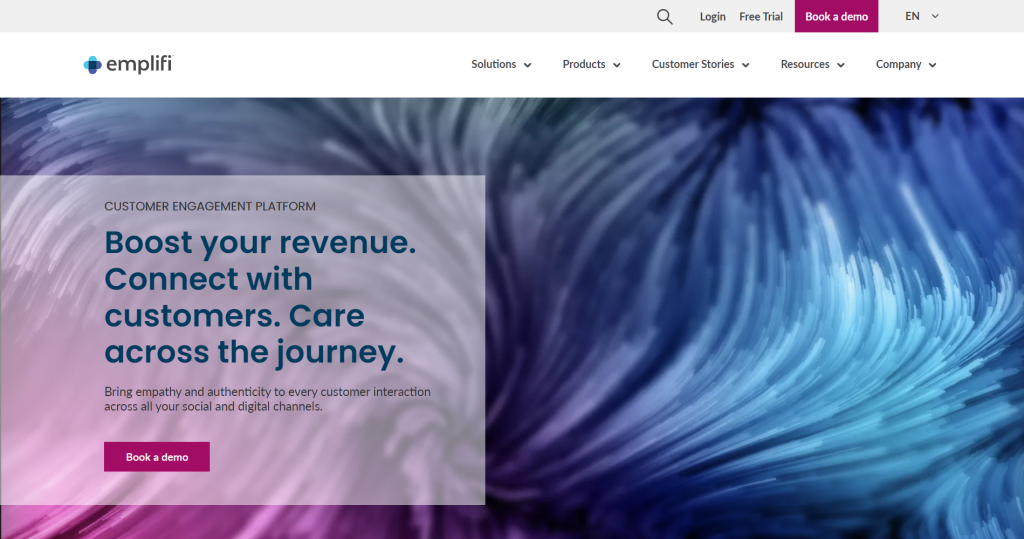
3. Heyday: Heyday allows for AI-powered content creation for bots and natural language processing and generation for customer interactions. It can handle several users simultaneously through chatbots to reduce response times and drive higher satisfaction rates.
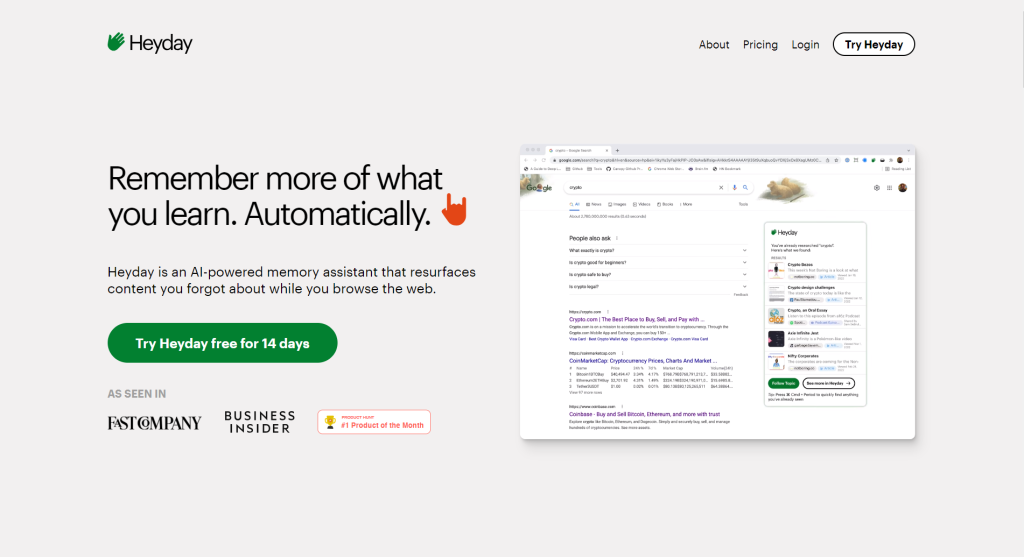
4. Flick: Flick is a self-service influencer marketing solution that streamlines the entire process from finding influencers to securing collaborations. The platform uses machine learning to analyze influencer content on Instagram to predict which campaigns will perform best.
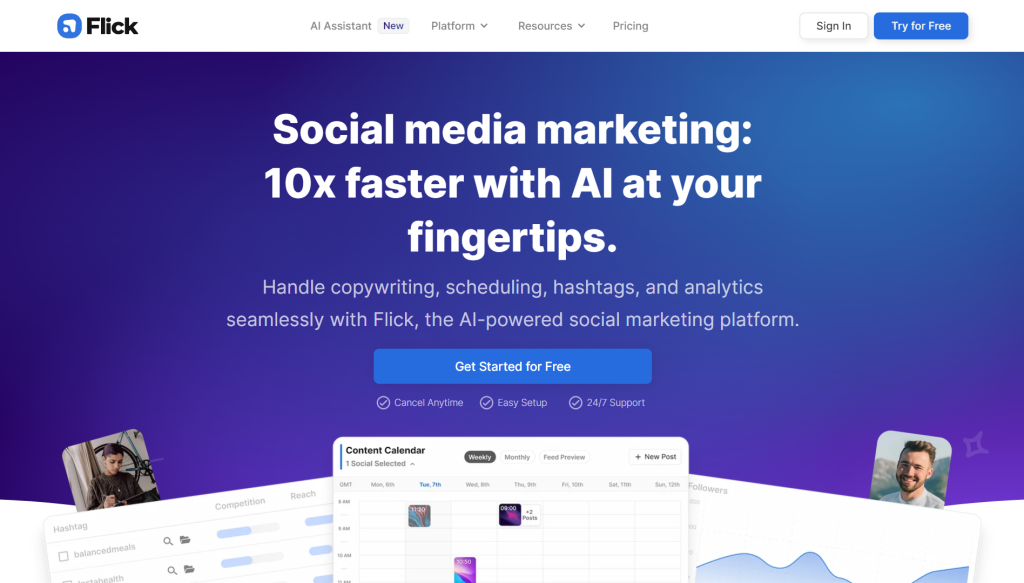
These AI-powered tools can help businesses create various types of content for different social media platforms, schedule posts in advance, track engagement metrics, target specific audiences or groups, and maximize their social media presence. Register with On-Page.ai to learn about tools for getting started with your social content creation.
Responses to Frequently Asked Questions with Detailed Explanations
What ethical considerations should be taken into account when using AI in social media content creation?
As we embrace the rise of AI-powered content creation, it is crucial to acknowledge and address the potential ethical concerns that arise. Here are some critical considerations:
1. Bias: AI models are only as unbiased as their data sources. Therefore, if the training data is biased, so will be the system’s output. For instance, if an AI algorithm is fed with text data that contains gender or racial bias, it can result in discriminatory content creation.
2. Ownership and copyright: If an AI-enabled tool generates original creative content such as music or artwork, who owns the rights to the finished product? It is essential to establish clear guidelines for ownership before deploying such tools.
3. Accountability: Despite being machines, AI systems can cause significant harm when not adequately regulated. Ensuring that businesses take responsibility for their AI-generated content and providing a grievance mechanism for users whose rights have been violated by such content is critical.
4. Transparency: Companies must disclose when automation or AI tools are used in creating social media content and what influence they have on the user experience.
In conclusion, while AI has tremendous potential in revolutionizing social media content creation, we must exercise caution to safeguard against unintended consequences. As noted by Forbes, 84% of consumers believe companies using AI should be required to be transparent about how it influences decisions. Thus transparency and accountability are key factors in ensuring that ethical guidelines are respected where AI is involved.
What industries are seeing the most benefit from using AI in their social media strategies?
The integration of artificial intelligence (AI) in social media strategies has benefited a wide range of industries, but some have seen more significant advantages than others. One such industry is e-commerce, where AI-powered product recommendations and personalization algorithms are driving sales growth.
According to a study by Epsilon, personalized email campaigns achieved a 29% higher open rate and a 41% higher click-through rate compared to non-personalized campaigns. Furthermore, the use of chatbots on e-commerce sites has led to a 20% increase in conversion rates and up to 50% cost savings in customer service.
Another industry benefiting from AI-powered social media strategies is healthcare. Platforms like Facebook and Twitter have become valuable tools for patient engagement, information sharing, and crisis management. In addition, AI-powered chatbots have been developed to provide instant medical advice and support to patients.
According to Accenture, the adoption of AI-driven healthcare solutions could potentially save the US healthcare industry $150 billion annually by 2026.
Finally, the financial services industry is also leveraging AI in their social media strategies. Chatbots are being used to provide customer service, while predictive analytics algorithms are helping identify potential fraud cases before they happen.
A report by MarketsandMarkets estimates that the global market for AI in financial services will grow from $1.3 billion in 2018 to $7.3 billion by 2022 at a compound annual growth rate of 40.4%.
Overall, these industries serve as great examples of how AI-powered social media strategies can benefit businesses across diverse sectors. As technology continues to advance in the coming years, it will be exciting to see how companies across various domains will leverage AI for even greater success.
How effective is AI in creating engaging and meaningful social media content?
AI-powered content creation is proving to be increasingly effective in creating engaging and meaningful social media content. According to a 2019 study by Hubspot, 63% of marketers found AI and machine learning helpful in generating personalized content for their audience. This technology allows for the analysis of large amounts of data, such as consumer behavior patterns and trends, to create relevant and impactful content.
Moreover, AI’s ability to analyze language patterns and sentiments is making it easier to create emotionally intelligent content that resonates with the target audience. Platforms like OpenAI’s GPT-3 have been used to generate compelling headlines, ad copy, and other promotional material.
However, it is important to note that AI-generated content still requires human oversight to ensure ethical concerns are addressed. Additionally, the true value of social media lies in its ability to foster authentic engagement between people, brands, and communities. Therefore, AI should only be used as a tool to supplement human creativity, not replace it entirely.
Overall, the effectiveness of AI in creating engaging and meaningful social media content will continue to improve as technology advances and more companies adopt this approach.
What advancements can we expect to see in the near future for AI in social media content creation?
Great question! The advancements we can expect to see in the near future for AI in social media content creation are nothing short of impressive. AI-powered content creation will enable businesses and individuals to produce high-quality, personalized content at scale, driving engagement and conversions.
Here are some of the advancements that we can look forward to:
1. Natural language processing (NLP): NLP technology allows machines to understand and interpret human language. With this technology, AI systems can create more compelling copy by analyzing the language used in existing content and generating new copy that mimics its style and tone.
2. Image and video recognition: These technologies help AI systems recognize images and videos, enabling them to select relevant visual elements that work well with written content.
3. Content personalization: AI can analyze user data such as search history, browsing behavior, and purchase history to generate personalized recommendations for individual users.
According to a report published by MarketsandMarkets, the global AI in social media market is expected to grow from $0.6 billion in 2018 to $2.2 billion by 2023, at a compound annual growth rate (CAGR) of 28.3%. This shows the increasing demand for AI-powered content creation tools across different industries.
In summary, we can expect AI-powered social media content creation to become increasingly sophisticated in the near future, facilitating personalized experiences that drive greater engagement and commercial success for businesses and individuals alike.
Can AI truly replace human creativity in social media content creation?
While AI-powered content creation has made significant advancements in recent years, it’s essential to note that machines cannot replace human creativity entirely. Human emotions and experiences inspire inventive ideas that contribute to meaningful social media content.
Statistics reveal that while AI can generate content at a faster rate, only 6% of consumers prefer AI-generated content over human-generated ones. Furthermore, 90% of consumers believe authenticity is vital when consuming social media content, which is difficult for an algorithm to create.
AI has its strengths in data analysis and fact-checking; however, creativity and storytelling are still areas where humans excel. Social media is about creating authentic connections with your audience by sharing original thoughts and experiences, something that an algorithm can’t replicate accurately.
While the future holds exciting possibilities with AI-powered content creation, it’s crucial for businesses to strike a balance between using technology as a tool for optimization while elevating their human creativity to create impactful social media content. Try On-Page.ai’s Stealth Writer for an excellent writing experience for your content.


